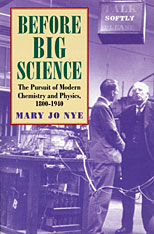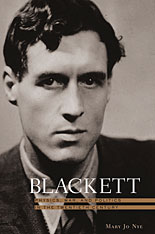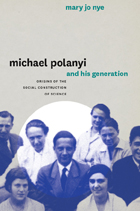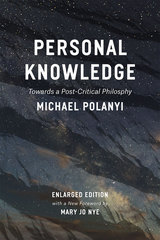
Today's vast multinational scientific monoliths bear little resemblance to the modest laboratories of the early nineteenth century. Yet early in the nineteenth century--when heat and electricity were still counted among the elements--changes were already under way that would revolutionize chemistry and physics into the "big science" of the late twentieth century, expanding tiny, makeshift laboratories into bustling research institutes and replacing the scientific amateurs and generalist savants of the early Victorian era with the professional specialists of contemporary physical science.
Mary Jo Nye traces the social and intellectual history of the physical sciences from the early 1800s to the beginning of the Second World War, examining the sweeping transformation of scientific institutions and professions during the period and the groundbreaking experiments that fueled that change, from the earliest investigations of molecular chemistry and field dynamics to the revolutionary breakthroughs of quantum mechanics, relativity theory, and nuclear science.

This is a lively and compact biography of P. M. S. Blackett, one of the most brilliant and controversial physicists of the twentieth century. Nobel laureate, leader of operational research during the Second World War, scientific advisor to the British government, President of the Royal Society, member of the House of Lords, Blackett was also denounced as a Stalinist apologist for opposing American and British development of atomic weapons, subjected to FBI surveillance, and named as a fellow traveler on George Orwell's infamous list.
His service as a British Royal Navy officer in the First World War prepared Blackett to take a scientific advisory role on military matters in the mid-1930s. An international leader in the experimental techniques of the cloud chamber, he was a pioneer in the application of magnetic evidence for the geophysical theory of continental drift. But his strong political stands made him a polarizing influence, and the decisions he made capture the complexity of living a prominent twentieth-century scientific life.


In this remarkable treatise, Polanyi attests that our personal experiences and ways of sharing knowledge have a profound effect on scientific discovery. He argues against the idea of the wholly dispassionate researcher, pointing out that even in the strictest of sciences, knowing is still an art, and that personal commitment and passion are logically necessary parts of research. In our technological age where fact is split from value and science from humanity, Polanyi’s work continues to advocate for the innate curiosity and scientific leaps of faith that drive our most dazzling ingenuity.
For this expanded edition, Polyani scholar Mary Jo Nye set the philosopher-scientist’s work into contemporary context, offering fresh insights and providing a helpful guide to critical terms in the work. Used in fields as diverse as religious studies, chemistry, economics, and anthropology, Polanyi’s view of knowledge creation is just as relevant to intellectual endeavors today as when it first made waves more than fifty years ago.
READERS
Browse our collection.
PUBLISHERS
See BiblioVault's publisher services.
STUDENT SERVICES
Files for college accessibility offices.
UChicago Accessibility Resources
home | accessibility | search | about | contact us
BiblioVault ® 2001 - 2024
The University of Chicago Press









